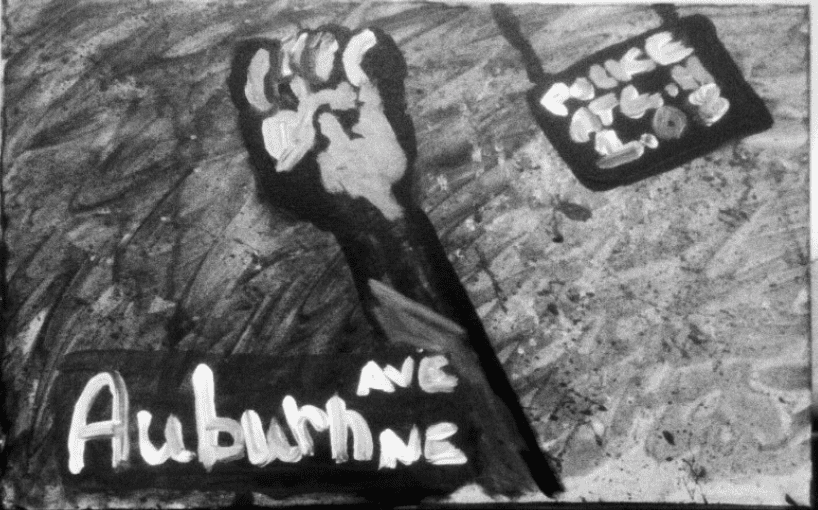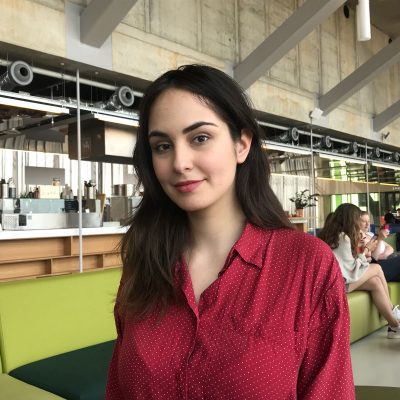Details
Article
Many ideals and practices, when it comes to human rights activism, get lost along a hampered road to success. Loss, hopelessness and lack of resources hinder the sustainability of a social movement and more often than not leave a positive change as a singular point in time and space, unfollowed by a bigger structural change. However, John Lewis was the trailblazer that would not stop, and has not stopped, fighting against violations of human rights. His life-long determination towards issues seemingly unrelated, such as LGBTQ+ rights and racial discrimination, puzzled me at the start of the Fellowship that carries his name, a name that used to mean nothing of significance to me. Contrary to my belief, every human rights issue is correlated and intersectional, all of them becoming inseparable, as Dr. Martin Luther King Jr. said, “Not one is free until all of us are free”.
John Lewis was the trailblazer that would not stop, and has not stopped, fighting against violations of human rights.
As the program advanced and we learned about the historical context of the Civil Rights Movement in the United States of America and the demands made by the leaders of the time, it became increasingly clear to me that their ideals have still not been accomplished. The role of historical lessons has been reinforced many times in order to unveil the perpetual patterns of structural racism in the America, as pointed out by Dr. Carol Anderson. Whereas voter turnout and political apathy is one of the most important problems on a European level, the American context faces challenges when it comes to voter suppression and inaccessibility to the voting booth. Moreover, voter fraud was proved to be a made-up problem in order to legitimize harsher laws for voter identification. While navigating these binary thoughts of European-American voting rights, I found myself refuging to the all-to-known reality of the Romanian political system, which, in an unfortunate mix, presents all the bad symptoms of both contexts: voter suppression, voting fraud and voting apathy. The discussions with the other participants made me realize how the simple reality of presenting a government issued photo ID can hinder a larger group of the population from turning up at the voting polls. To me, this translated into thinking about the undocumented Roma community in Romania, which is underrepresented in political bodies, even though they represent 3.3% of the total population, according to the 2016 census. However, it is approximated that around half a million members of the Roma community are undocumented, adding a significant percentage over the one of the census (G.S., 2017). This is due to cultural norms and disbelief in the Romanian political system, but also because of the deterrence mechanisms imposed: Romania is the only European country that requires a document of property in order to obtain a national government issued ID, making it impossible for nomadic populations to benefit from healthcare, education and social benefits (G.S, 2017). Thus, I am determined to identify more mechanisms of voter suppression which are hidden under the veil of ‘normality’ and a seemingly logical chain of thought, which seems reasonable to the ruling majority.

Seeing all the activist speakers, who so selflessly put their body and minds on the line for the cause they believe in, made me question the impact of my actions and how I can have a bigger impact.
Should I mirror their willingness and behavior and hope for the best? Shortly I was reassured that a social movement has many complex pieces put together and the work and skills of each person involved can be put to great use. As it turns out, Big Data is part of the backstage of activism: being data informed but not data driven. Statistics and analysis are needed to prove the facts which protests are fighting against, because reality is manufactured and in order to change the narrative of a problem sometimes the tools of the oppression system are used. In the midst of moral uncertainty, I used to ground myself in the factual and logical certainty of science. As proven by eugenics and averages (with a skewed sample), science is a manifestation of power and the oppressor uses it as a tool to justify their actions. As an academic, I realized that I am not only responsible for critically analyzing the scientific work of others and doing ethical research work, but I am also in charge of creating realities and narratives through the results that I get and how those can be manipulated for different causes.

After talking with people from different areas of expertise, from sports activism to LGBTQ+ rights, I started noticing a pattern in the way a movement is planned and gains momentum, and I summed up my conclusions in Diagram 1. Seeing the different layers of creating sustainable change, I believe my role would be in the top two layers. As all speakers emphasized, finding our own voice in the movement is difficult but respecting personal boundaries is crucial in staying alert and out of ‘bad’ trouble.
The connectedness between grassroots initiatives in Atlanta and their policy-activists counterparts is what impressed me in the way that different communities decided to unite towards a common goal.
Moreover, the layers presented in Diagram 1 are intertwined and cannot construct a meaningful change unless acted upon simultaneously. The connectedness between grassroots initiatives in Atlanta and their policy-activists counterparts is what impressed me in the way that different communities decided to unite towards a common goal. Thus, I discovered an innovative way in which the gap between societal change and academic work is closed, because lawyers cannot lobby for change without protesters and shelters cannot continue giving away help without the organizations that advance goals for structural changes that prevent the problem.
In conclusion, the time and space created by the John Lewis Fellowship embodied many lessons that cannot be expressed within a reflection, at such short time after experiencing trauma, hope and joy. After having four intense weeks of learning about activism, I am convinced that many other insights will be revealed to me after practicing some of the self-care lessons I have been taught by other participants and speakers. The weight put on the us, as John Lewis Fellows, to be ‘change agents’ and ‘make a better future’ will lift and leave behind motivation and perseverance to continue fighting for liberation, from the smallest to the largest scale.
References
G.S. (on HotNews.ro) 15th of November 2017. Retrieved from https://www.hotnews.ro/stiri- esential-22113942-deputat-550-000-cetateni-romani-nu-poseda-acte-identitate.htm



